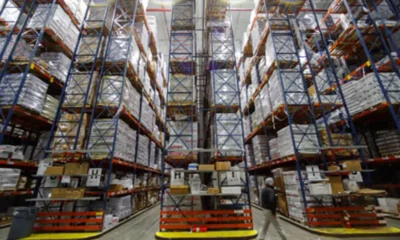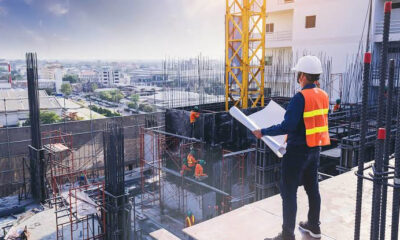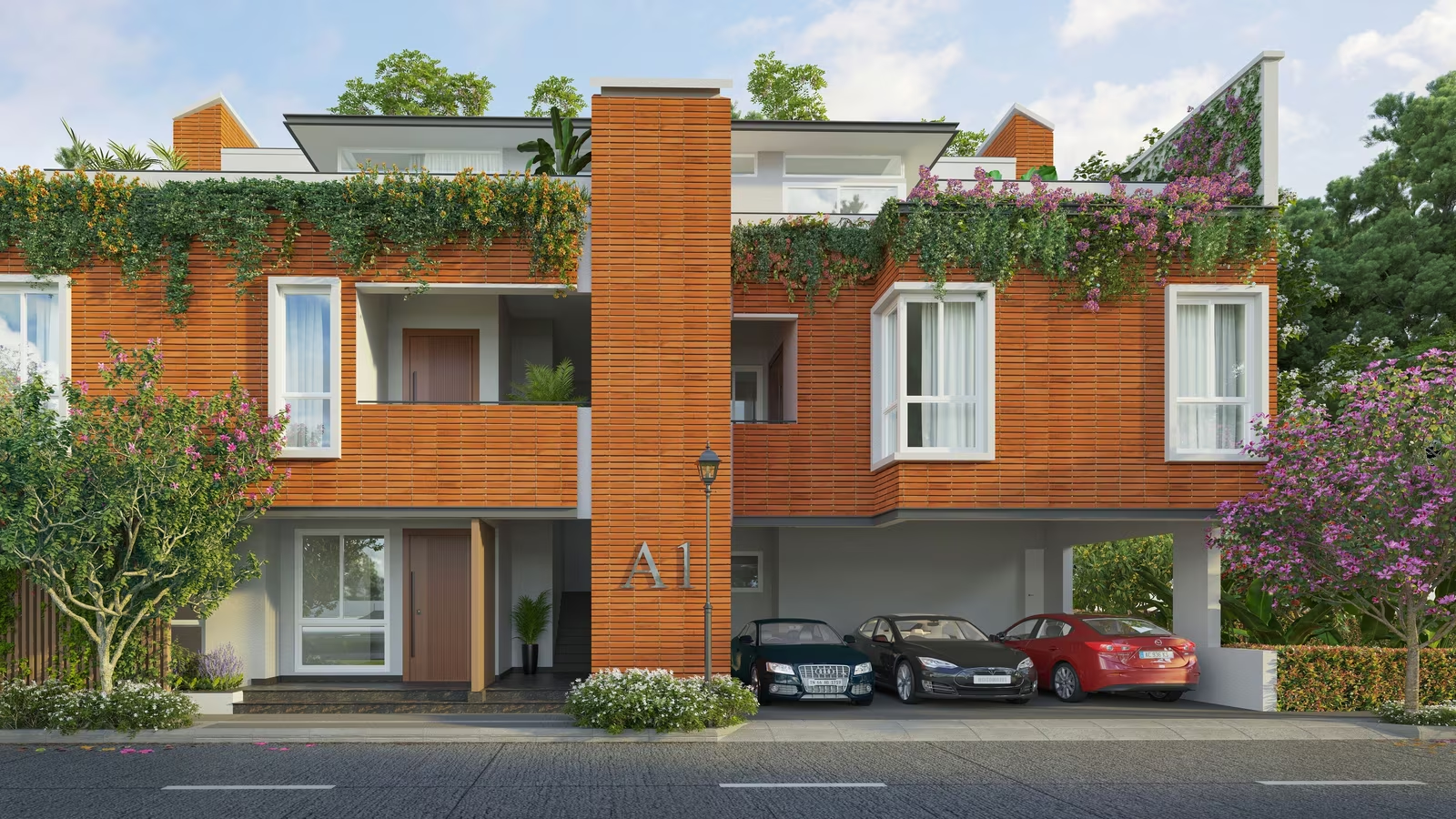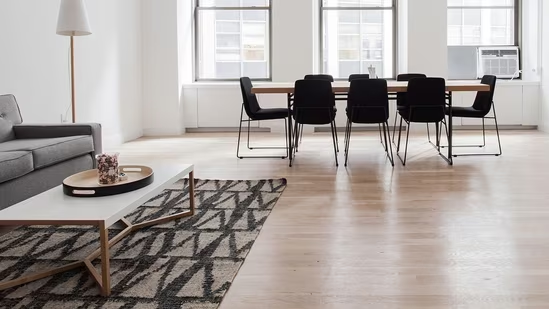Main
India Leads In Flexible Space Markets Across APAC- CBRE
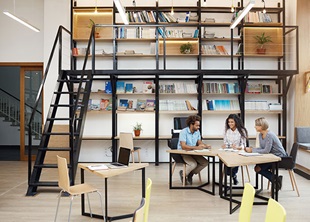

Overall stock of the country increased by about 50% from 10 million sq. ft. in 2017 to around 15 million sq. ft. by the end of Q3 2018
- Bangalore and Delhi – NCR were the largest markets for flexible spaces in India, with a combined share of almost 55% in overall flexible space stock
- More than 80% of the leasing by flexible space operators was witnessed in the top three cities of Delhi-NCR, Bangalore and Mumbai
- The share of flexible spaces as part of total office absorption also doubled from 5% in H1 2017 to about 10% in H1 2018
- As of H1 2018, flexible spaces account to approximately 1.7% of the total office stock in Asia Pacific; Shanghai and Delhi-NCR were the only two markets in the region where flexible spaces account for more than 3% of the overall office stock
New Delhi, 13th December 2018: CBRE South Asia Pvt. Ltd, India’s leading real estate consulting firm, today announced the findings of its latest report titled ‘FLEXIBLE SPACE’ TENANT SURVEY – 2018. According to the report, the overall stock of flexible space market in India (including all seven Indian cities) increased by about 50%, from almost 10 million sq. ft. in 2017 to about 15 million sq. ft. by Q3 2018, making it among the biggest markets in the APAC region. Furthermore, Bangalore and Delhi-NCR were the largest markets for flexible spaces in India, with a combined share of almost 55% in overall leasing by flexible space operators. The report also highlights that flexible spaces account to approximately 1.7% of total stock in Asia-Pacific; Shanghai and Delhi-NCR are the only two cities where flexible space share is more than 3% of the overall office stock.
Leasing activity by flexible space operators quadrupled from 2016 levels to about 3.5 million sq. ft. in 2017. More than 80% of the leasing by flexible space operators was witnessed in the top three cities of Delhi-NCR, Bangalore and Mumbai. Moreover, the share of flexible spaces as a part of total office absorption has also doubled from 5% in H1 2017 to about 10% in H1 2018. To view the report, see: Link
Commenting on the findings of the report, Mr. Anshuman Magazine, Chairman, India and South-East Asia, CBRE, said: “Originating as a shared service for start-ups, flexible spaces are now being utilized by established corporates as well to make their portfolios more agile amid a dynamic business environment. Given that the Indian flexible space market is one of the biggest across APAC, we anticipate that this segment will remain high on the investor radar as well. We expect that the leasing quantum of this segment would rise from about 5.4 million sq. ft. in 2018 to about 7-9 million sq. ft. by 2020.
In August 2018, CBRE India’s Research and A&T Occupier Group conducted interviews with leading flexible space tenants across the country to get their views on the overall experience of operating from flexible spaces. The survey covered both global and domestic tenants operating out of various flexible space formats such as co-working, business centers and hybrid spaces. The coverage of this survey was wide enough, including tenants whose share of flexible spaces in their overall portfolio ranged from less than 5% to more than 50%.
The respondents belonged to a wide spectrum of industries; ranging from technology, banking, financial services, engineering, manufacturing to media and e-commerce.
The survey also indicated that respondents had varied responses towards working from flexible spaces, depending on the sectors they belonged to. For instance, BFSI corporates, under heavy regulations for data privacy/security, are currently in the early stages of incorporating agility in their office portfolios. Comparatively, corporates belonging to consumer goods and technology are at a more advanced stage as they are more open towards operating from flexible spaces.
Building on that trend, our survey also indicated that more than 60% of tech, media and e-commerce respondents gave access of flexible spaces to all management levels; as opposed to only 20% of BFSI respondents.
Mr. Ram Chandnani, Managing Director, Advisory and Transaction Services India, CBRE, said: “As employees are keen on the percolation of flexibility to all aspects of work, it is evident that flexible spaces are here to stay. The optimism of flexible space operators is being fueled by the rising interest of established corporates in this segment. We anticipate that this trend would continue, given the willingness of operators to customise offerings and prioritise member loyalties. ”Flexible space operators are anticipated to become more attuned to the latest tech, which could benefit both corporates and employees,” he further added.
The survey also found ‘Core + Flexi’ space solutions are conducive for space efficiency, which is the key to cost management across the globe. A huge advantage for flexible spaces was low / negligible upfront costs in comparison with a traditional lease, a statement affirmed by 70% of our respondents.
In fact, despite additional charges for using services such as meeting rooms, more than half of the survey respondents reported a reduction in overall costs while operating from flexible spaces. However, as per market feedback, this holds true for only short-term leases. For tenants that want a long-term solution and have a sizeable workforce, traditional leases are still the financially viable option.
Mr. Rajat Gupta, Managing Director, Advisory and Transaction Services India, CBRE, said, “Technology gave birth to the concept of ‘a liquid workforce’ and flexible space operators are anticipated to embrace it even further for the benefit of their actual customers / end users – employees of the various corporates occupiers. We expect corporates to focus more on tech-related aspects of flexible spaces for optimizing/monitoring space usage along with improving productivity and collaboration. Employees at the same time would be more interested in digitizing amenities and value-add services.”
Tech and Property Management: With the quality of property management being a key factor in the ‘stay or leave’ decisions of respondents, building management and business administration have emerged as critical aspects of corporate real estate decision making.
PROPTECH: Adoption of technology in real estate portfolio management is a continuous process. To finetune workplace strategies, one needs to monitor space usage and then optimise portfolios. In today’s digitized era, the priority attached to PropTech is high across all geographies / regions. This holds true for traditional as well as flexible space occupiers. Respondents to our survey also prioritised PropTech with Meeting room allocation (almost half), space utilization (almost half) and workplace allocation (about 60%) emerged as the crucial aspects which need to be tech-enhanced in flexible spaces. In fact, as established corporates strive to optimise their portfolios, about half of the respondents rated monitoring of space usage as critical.
The report also revealed that different formats of flexible spaces are now converging together, with a largely interchangeable set of products rather than distinct constructs. A common theme is that of talent retention/attraction which involves the provision for a diverse range of amenities and value-add services. Operators have been offering diverse products with an aim to differentiate themselves by offering various amenities and services as part of their placemaking initiatives in flexible spaces. Almost half of the survey respondents also reported an increase in employee productivity after using flexible spaces.
Going ahead, about half of the respondents said they expect to allocate more than 10% of their portfolios to flexible spaces over the next two years. This clearly signifies strengthening occupier sentiments in this segment.
These positive sentiments towards flexible spaces are being backed by demand from established corporates, who are eager to avail the vast benefits of flexible spaces. About half of established corporates stated that they would allocate more than 10% of their office portfolios to agile spaces in the next two years.
Overall, a few trends that CBRE anticipates prevailing in this segment in India by 2020 include: –
- Increasing share of flexible space in overall leasing: The share of flexible spaces has already doubled from 5% to H1 2017 to 10% in H1 2018 – a clear indication of the aggressive expansion plans of operators. We anticipate that the leasing quantum of this segment would rise from about 5.4 million sq. ft. in 2018 to about 7-9 million sq. ft. by 2020.
- More established corporates to opt for flexible spaces: The optimism of flexible space operators is being fueled by the rising interest of established corporates in this segment. We anticipate that this trend would continue, given the willingness of operators to customise offerings and prioritise member loyalties.
- Nichification of product offerings: It has been mentioned previously that various formats of flexible spaces have now started to converge, with an interchangeable set of product offerings such as hybrid spaces. However, while the line may blur between various flexible space types, we anticipate operators to tailor offerings to remain differentiated from close competitors.
- ‘Free-Addressing’ policies to boost operator expansion: As employees embrace the option of working remotely from any location, operators are keen to attract corporate demand by expanding to multiple locations within the same city. More particularly, operators are expected to change their strategy of staying only in core parts of a city to moving to various peripheral locations. The convenience of ‘plug and play’ formats offered by these new-gen workspaces would thus enable companies to follow the ‘hub and spoke’ model, with the corporate office serving as the ‘hub’ and flexible spaces spread across the city acting as ‘spokes’.
- Flexible spaces unlikely be limited to office buildings: CBRE’s 2017 report on this segment had highlighted that flexible operators would move to retail spaces as well. This trend has come in greater prominence – operators are now looking at underperforming shopping centers as well as mixed-use (office-cum-retail) developments. We further anticipate that operators would also look at semi-investment grade or refurbished options, keeping in mind the location and cost of these properties.
-



 News4 weeks ago
News4 weeks agoKW Delhi 6 Mall Onboards New Brands
-



 News4 weeks ago
News4 weeks agoManasum Senior Living Launches IKIGAI GOA, A Senior Living Community in North Goa, in collaboration with Prescon Homes
-



 News4 weeks ago
News4 weeks agoBridging India Divide: Top 5 Tier- 2 Cities to Focus On
-



 News4 weeks ago
News4 weeks agoCommercial Realty Gets Tech Savvy: Fast Construction, Enhanced Convenience
-



 News3 weeks ago
News3 weeks agoGodrej Properties Sells Rs 3k cr+ Homes of Godrej Zenith, Gurugram, within 3 days
-



 News4 weeks ago
News4 weeks agoMultipoint Connection – A Definite Boon
-





 News3 weeks ago
News3 weeks agoRBI’s Status Quo on Key Policy Rates to Help Maintain the Real Estate Growth Momentum, Say Industry Stalwarts
-



 News2 weeks ago
News2 weeks agoOlive Announces Dhruv Kalro as Co-Founder













